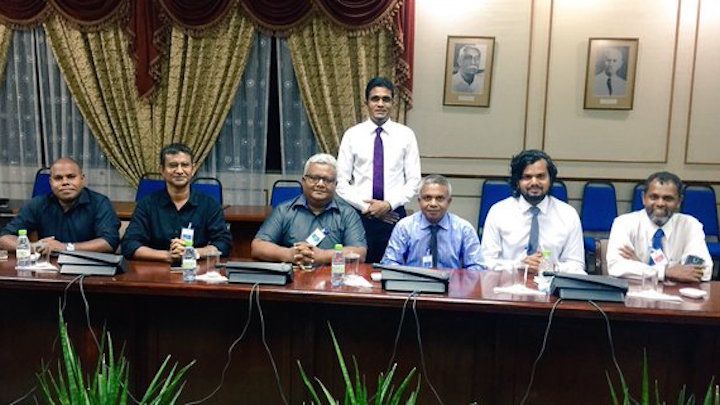Majority leader seeks to assuage journalists’ concerns over defamation bill
Speaking to reporters after a meeting Tuesday afternoon with the Maldives Media Council, the parliamentary group leader of the ruling Progressive Party of Maldives said the government is willing to address press freedom concerns raised by journalists and amend the proposed defamation and freedom of expression law.

06 Apr 2016, 09:00
Majority Leader Ahmed Nihan has signaled willingness to amend government-sponsored legislation on criminalising defamation and restricting the constitutional right to freedom of expression amid mounting concern over declining press freedom in the Maldives.
Speaking to reporters after a meeting Tuesday afternoon with the Maldives Media Council, the parliamentary group leader of the ruling Progressive Party of Maldives said the government is willing to address press freedom concerns raised by journalists.
“The bill was not drafted and brought to the Majlis with the intention of obstructing the work of journalists,” he said.
Nihan assured that the MMC and journalists will be consulted when the bill is reviewed at the committee stage. The bill would be withdrawn “if it would seriously obstruct journalists and their work,” he added.
Become a member
Get full access to our archive and personalise your experience.
Already a member?
Discussion
No comments yet. Be the first to share your thoughts!
No comments yet. Be the first to join the conversation!
Join the Conversation
Sign in to share your thoughts under an alias and take part in the discussion. Independent journalism thrives on open, respectful debate — your voice matters.




